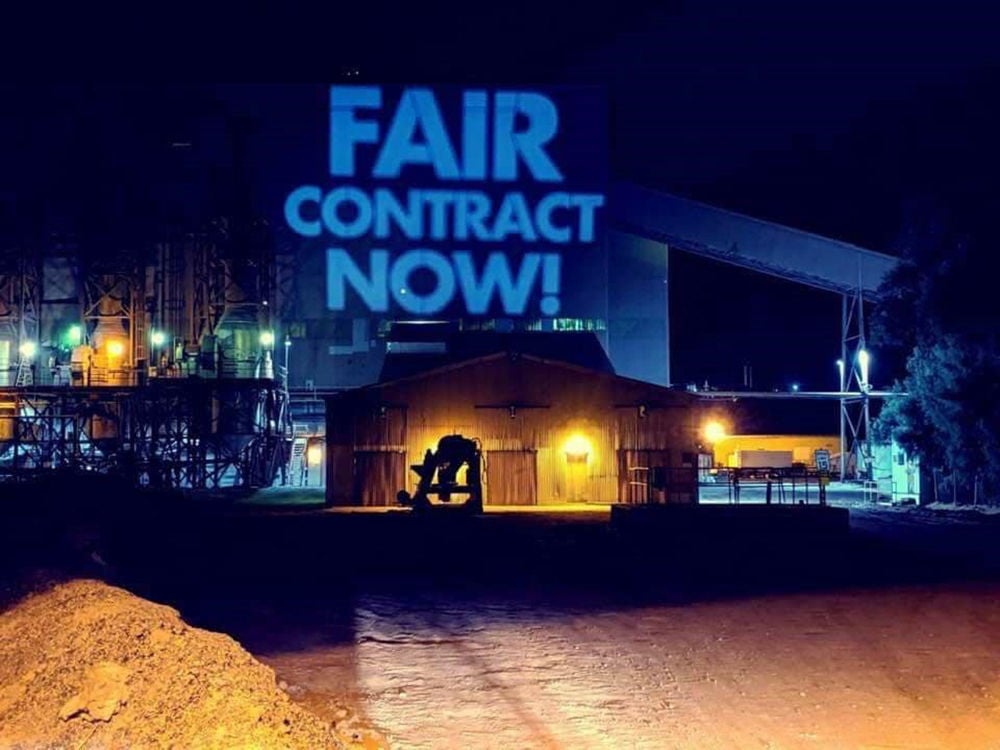Tucson-based copper producer Asarco LLC has begun to reinstate some workers who went on strike nine months ago.
But Asarco says it won’t be firing its replacement workers, and union members are entitled to their former or similar positions only as jobs are available.
Unions representing the Asarco workers say the company’s rehiring policy is unlawful and have filed new charges against Asarco with federal labor regulators.
The United Steelworkers and six other unions representing about 1,800 Asarco workers in Arizona and Texas went on strike in October, rejecting the company’s final offer and accusing the company of bargaining in bad faith.
The unions dropped their picket lines and offered to return to work on July 6, a few weeks after the National Labor Relations Board filed a formal complaint against Asarco based on the unions’ charges.
The NLRB complaint initially backs the union’s charges that Asarco had bargained in bad faith, illegally declared an impasse in contract talks and engaged in various other unfair labor practices under the law.
If the finding of unfair labor practices is upheld after formal NLRB hearings on the matter, striking workers would be entitled to get their jobs back.
If the NLRB rules that the Asarco unions had engaged in an “economic strike” — aimed at gaining higher wages or other economic benefits — then the company would not be required to reinstate the striking workers.
In response to the union’s offer to return to work, Asarco said in a letter that it wouldn’t be terminating its “permanent replacements.”
“The former strikers will be entitled to their former positions or to substantially equivalent positions to the extent they are available,” the company said. “Those not reinstated will be placed on a preferential hire list.”
In a letter dated July 8 and signed by Asarco human resources Director Stacy Sinele, the company said it’s confident that the NLRB probe will result in a finding that the company “negotiated in good faith to an impasse.”
“We think the evidence is overwhelming that the strike was related solely to economics notwithstanding the unions’ self-serving comments to the contrary,” the letter states.
The company has repeatedly ignored the Star’s requests for comment on the strike and NLRB proceedings.
Eduardo Placencio, president of Steelworkers Union Local 937 in Tucson, says Asarco is calling workers back in a “piecemeal” fashion and is not updating the unions, so it is unclear how many former strikers have been rehired.
The unions say the way that Asarco is handling the return to work is unlawful on several grounds, including its reinstating former strikers under the terms of the “last, best, and final offer” that Asarco implemented on December 2.
That last offer, unilaterally implemented by the company last December, freezes pension plans, leaves two-thirds of the workers without a raise, and more than doubles their out-of-pocket employee paid health care, the unions say.
“Some people are not going back because they don’t want to work under those terms,” Placencio said.
The unions recently filed new NLRB charges, challenging Asarco’s failure to immediately reinstate the returning strikers and dismiss or displace replacement workers, and alleging the company has retaliated against union members.
The Steelworkers is leading a group of unions at Asarco that also includes the Teamsters, the International Brotherhood of Electrical Workers, the International Association of Machinists and Aerospace Workers, the International Union of Operating Engineers and the International Brotherhood of Boilermakers.
In their latest charges filed with the NLRB, the unions have asked that workers who return under the company’s contract offer be reimbursed for higher health-care costs, any lost copper-price bonuses or other losses, and workers assigned to lower-paying jobs may be entitled to some additional compensation.
But all of those rights depend on the unions successfully proving that the strike was prompted by unfair labor practices, the Steelworkers said.
The unions say the choice of whether to return to work is up to the members, but refusing an offer carries some major risks.
If a worker refuses to return under Asarco’s offer of reinstatement, the company will likely consider that worker as having resigned, and they will be removed from the preferential hiring list, the union said.
Workers who decline to go back to work — for any reason and regardless of the outcome of the NLRB case — will likely lose their eligibility to collect unemployment compensation benefits for having rejected suitable employment, the unions said.
Asarco operates the Mission Mine in Sahuarita; the Silver Bell Mine in Marana; the Ray Mine and Hayden smelter in Central Arizona; and a refinery in Amarillo, Texas.





